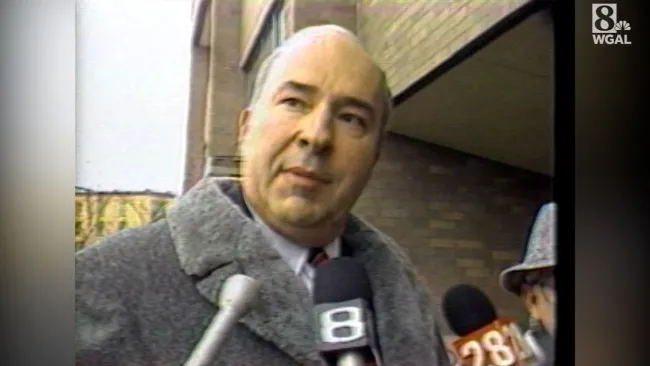The Tragic Fall of R. Budd Dwyer: A Life Defined by Corruption, Scandal, and a Public Suicide
"Honest Man" is more than just a documentary—it’s a searing exploration of power, corruption, and the devastating consequences of a system that destroys individuals. Directed by James Dirschberger and meticulously crafted over four years, the film traces the life of R. Budd Dwyer, the Pennsylvania politician whose rapid rise was destroyed by a bribery scandal that left him with no way out.
Dwyer’s story serves as a chilling reminder of how ambition, betrayal, and systemic failure can crush even the most steadfast individuals. The film does not shy away from Dwyer’s infamous public suicide, yet it also humanizes the man behind the headlines—a former teacher, coach, and dedicated public servant who once embodied integrity.
Featuring exclusive interviews with Dwyer’s family, friends, and colleagues—including his widow Joanne, who gave her final interview before her death—the documentary also includes damning testimony from William Trickett Smith, the key witness whose lies led to Dwyer’s conviction. Through these voices, the film forces viewers to confront a haunting question: Was Dwyer a pawn in a rigged system, or did he play a role in his own downfall? The answer, as Honest Man reveals, is far from black and white.
Jan. 22: The Dark Anniversary of Budd Dwyer’s Public Suicide
On January 22, 1987, R. Budd Dwyer made history—but not in the way he had hoped. Facing a 55-year prison sentence for bribery, Dwyer chose to end his life on live television rather than submit to what he saw as a system already stacked against him. The press conference, intended as a resignation announcement, turned into a horrifying spectacle when Dwyer pulled out a .357 Magnum and took his own life in front of the cameras. The shocking act was broadcast live, leaving viewers—including children home from school—traumatized and forever changed.
Before his final act, Dwyer handed out envelopes: one contained a suicide note for his wife, Joanne, while another held a signed organ donor card. His cryptic parting words—“To those of you who are shallow, the events of this morning will be that story”—hinted at a deeper, untold narrative. Was his suicide a desperate act of defiance against a corrupt system, or a tragic admission of guilt? Honest Man doesn’t provide easy answers, but it forces viewers to confront the complexity of Dwyer’s choices.
The Legacy of Budd Dwyer
Dwyer’s life and death remain a lightning rod for controversy. Six years after his suicide, a key witness admitted to lying under oath, leading to Dwyer’s posthumous exoneration. Yet, the damage was irreversible. His family was left to navigate the fallout, including the controversial $1.28 million pension payout that sparked debates about justice and accountability.
Honest Man doesn’t simply retell Dwyer’s story; it challenges viewers to confront the flaws in a system that can destroy a man’s life and reputation, only to later admit it was wrong. Was Dwyer a victim of systemic corruption, or did his own decisions seal his fate? The film leaves that question open, but it’s clear that Dwyer’s story is one of profound loss—not just for his family, but for the ideals of integrity and justice he once stood for.
A Wake-Up Call for a Nation
Dwyer’s public suicide was more than a personal tragedy—it was a brutal indictment of unchecked corruption and a stark reminder of the fragility of the human spirit. It forced news organizations to rethink their role in broadcasting traumatic events and exposed the deep flaws in a system that could ruin a man’s life, only to later acknowledge its mistakes.
As we mark the 37th anniversary of Dwyer’s death, Honest Man stands as a powerful reminder of the human cost of political corruption and the enduring impact of one man’s desperate act. It’s not just a cautionary tale; it’s a call to action for a society that still struggles to uphold fairness and justice.
